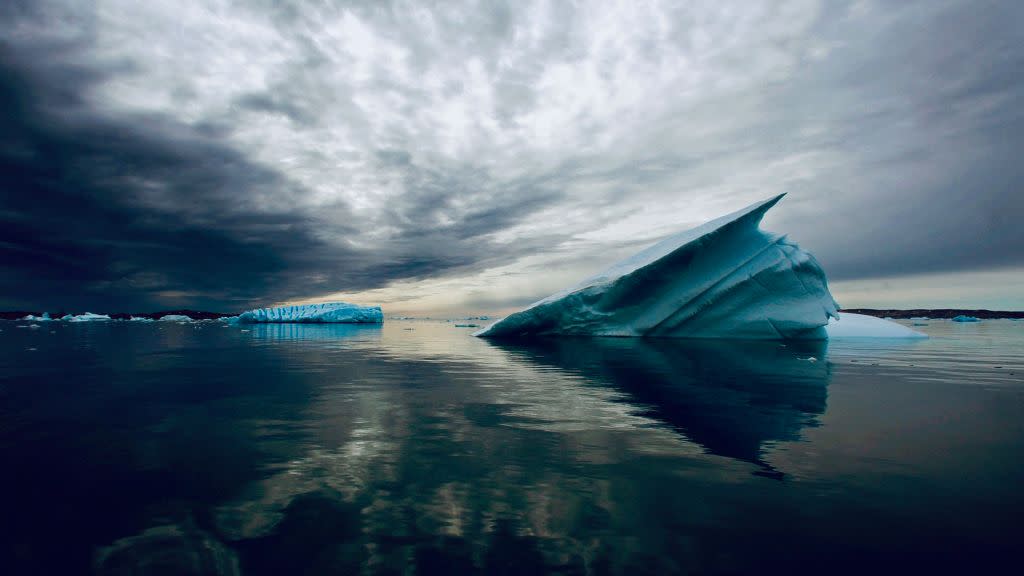Greenland has serious problems. A Trump deal isn’t one of them.

Greenland, which is not green but icy, was so named by an Icelandic exile hoping to attract settlers. Now the ice is melting and citizens of the autonomous Arctic territory, which US president Donald Trump wants to purchase from Denmark, are on the frontlines of climate change, watching as their way of life melts away.
Trump’s desire to acquire the land is, in fact, the least of their concerns.
On Aug. 20, Trump canceled plans to visit Denmark next month, ostensibly because the country’s authorities have rebuffed any possible discussion of selling Greenland. He claimed to want to unburden the Danes, who spend more than $700 million annually supporting the territory, telling reporters, “Essentially, it’s a large real estate deal.”
The president, who rose to fame as a real estate developer, even joked on Twitter that he wouldn’t do to Greenland what he’s done with his other properties, building gaudy golden edifices stamped with his name.
I promise not to do this to Greenland! pic.twitter.com/03DdyVU6HA
— Donald J. Trump (@realDonaldTrump) August 20, 2019
For Greenlanders, all this chatter is just a distraction from far more serious and pressing woes. A new study from the University of Copenhagen and the Kraks Fond Institute for Urban Economic Research, released this month, shows that Greenlanders are experiencing a unique kind of grief associated with ecological change. As glacial ice is retreating and the sea ice they once crossed in winters becomes less reliable, the land is becoming unrecognizable to distraught locals.
The Greenlandic Perspectives Survey (GPS) reveals that 92% of residents believe climate change is happening, while only 1% deny it. The vast majority of the population, 76% of locals, say they’ve already personally experienced the effects of warming. “The impact of melting sea ice on the Greenlandic way of life cannot be underestimated,” Kelton Minor, lead author of the survey, told the Guardian. “Sea ice is an open highway, traversed by dog sled and snowmobile, connecting citizens to neighboring communities. An umbilical cord to friends and family in remote rural settlements. When it fails to freeze in winter it’s an obstacle to the community, to society in many ways.”
The winter ice has long served as a substitute for roads in Greenland. As temperatures warm, however, people are increasingly hesitant to cross the treacherous territory for fear of falling through. This fear also makes locals unwilling to take to the ice to hunt seal and halibut, as they did in the past. And most Greenlanders still rely on fishing and hunting for some of their sustenance. According to the study, more than half of locals, or 57%, fear that hunting is threatened by climate change, while nearly half, or 49%, are concerned that melting ice will impact fishing.
As a result of these climactic troubles, many Greenlanders are experiencing solastalgia, a term coined by Australian environmental philosopher Glenn Albrecht to describe the psychic pain of climate change, a feeling of missing home even without leaving, as home, the Earth, is changing. Courtney Howard, the board president of the Canadian Association of Physicians for the Environment, told the Guardian that Arctic people are now showing symptoms of anxiety, “ecological grief,” and even post-traumatic stress related to the effects of climate change. “The impact of climate change on mental health is a looming public health crisis,” she said.
This summer, Greenlanders have seen record-high heat and extreme ice melt. By the season’s end, the AP reports, about 440 billion tons (400 billion metric tons) of ice will have melted or calved off Greenland’s giant ice sheet.
As the citizens of Greenland see their country melting, literally, before their eyes, they struggle to imagine a bright future on ever-thinner ice, surrounded by rising seas. So Trump’s jokes about erecting golden towers are surely falling flat. As Shakespeare’s Danish Prince Hamlet put it, “something is rotten.” Only now, the rot’s not in the state of Denmark.
Sign up for the Quartz Daily Brief, our free daily newsletter with the world’s most important and interesting news.
More stories from Quartz:

